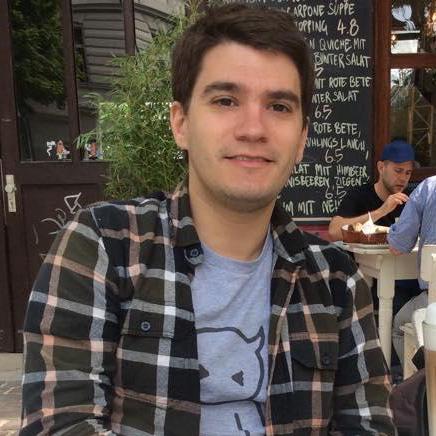Keynote Talk

Robert Feldt
Chalmers University of Technology and Blekinge Institute of Technology
SBST for AI and beyond - from single inputs to generative models
Abstract: Search-based software testing has made progress in the last 20 years and is now more routinely used to find desirable test inputs. However, we argue that for future progress the community need to get out from the hegemony of evolutionary search and also focus on finding models that generate data rather than on finding specific inputs. We analyze different use cases for SBST and in particular look at how "new" areas like AI and Machine Learning affect the type of search and fitness function that the community considers. We also draw on our experience from the industrial application of SBST to outline some potential "killer apps" but also on how the science of SBST likely needs to evolve to better cater to industrial needs.
Biography: Robert Feldt is a professor of Software Engineering (SE) at Chalmers University of Technology, Sweden, and at Blekinge Institute of Technology, Sweden. He has broad research interests spanning from human factors to hardcore automation and statistics and works on software testing and quality, requirements engineering, as well as human-centred (behavioural) software engineering. Dr Feldt was an early contributor to search-based software engineering. Most of his research is empirical and conducted in close collaboration with industry partners in Sweden, Europe and Asia, but he also leads more basic research. Dr Feldt received a PhD in Computer Engineering from the Chalmers University of Technology in 2002, has studied Psychology at Gothenburg University in the '90s and has also worked as an IT and software consultant for more than 25 years. He is passionate about empirical research and methods and changing organisations through technological innovation. He is co-Editor in Chief of the EMSE journal and on the editorial board of three other journals (STVR, ASOC, and SQJ).
Tutorial

Matias Martinez
Université Polytechnique Hauts-de-France
Astor: A framework for building automated software repair approaches.
Abstract: Astor is a framework for building approaches that repair buggy Java programs. Those repair approaches take as input a buggy Java program (having at least one failing test case that exposes the bug) and search for a patch that produces all test cases to pass. Astor provides twelve extension points that form the design space of program repair. Using those extension points, program repair researchers can create new repair approaches or extend those included in the framework by choosing existing components (among 33 ones) or implementing new ones. Astor also includes 6 publicly available repair approaches. In this tutorial, we will first discuss the main techniques proposed on the field of automated software repair for Java. Then, we will discuss how to execute repair approaches included in Astor framework, how to extend them, and how to implement new repair approaches reusing components provided by Astor.
Biography: Matias Martinez is an assistant professor at the Université Polytechnique Hauts-de-France (France). He received his diploma in computer science from UNICEN (Argentina) and his PhD from University of Lille (France). Prior to moving to academia, he worked as software developer and consultant at a multinational consulting company. His research interests are focused on software evolution, automated software repair, software testing and mobile applications. He is one of the founders and developers of Astor, an automated program repair framework.